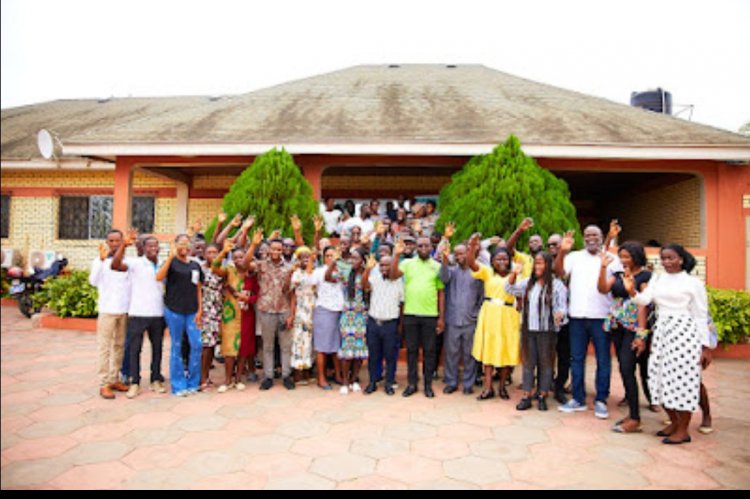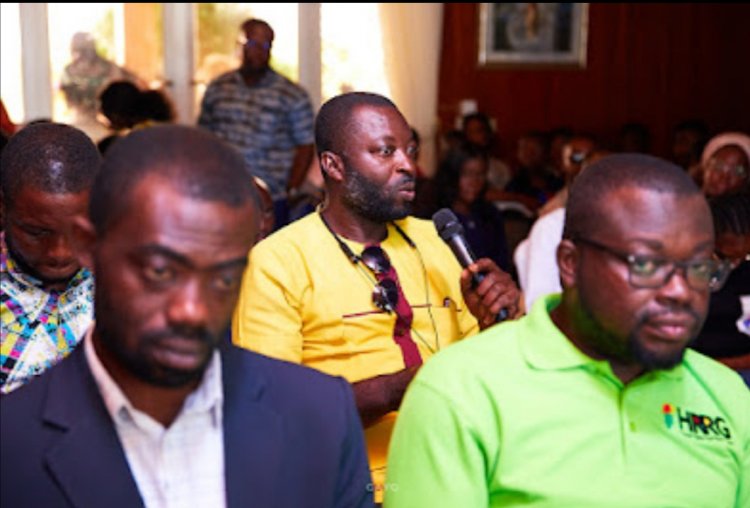GAYO schools journalists, stakeholders on harmful effects of plastics incineration, single-use plastics
The event aimed at promoting awareness to inspire actions towards sustainable solutions against incineration and plastic pollution.

In a bid to set the pace for behavioral change towards addressing the age-long narrative about the dangers caused by single-use plastics, the Green Africa Youth Organization (GAYO) has partnered with the Global Alliance for Incinerator Alternatives, Human Rights Reporters Ghana, and the Climate Journalism Network Ghana to sensitize media practitioners.

Dubbed: "Anti Incineration and Plastic Pollution Campaign Media Conference", it was a day-long event that brought together a cross-section of the Ghanaian media and was held in Accra on Friday, August 11, 2023.

The aim of the event was to promote awareness, inspire action, and mobilize actions towards sustainable solutions against incineration and plastic pollution.
In a two segmented event that sought to bring issues to the fore, educate the participants, and proffer solutions to enhance the anti-incineration and Plastic Pollution Campaign by GAYO, we first witnessed discussants made up of key players in academia, policymakers, and a representative from the Borla Taxi and Tricycle operative in the country.

Speaking on the issue of how helpful plastic incineration could be in addressing the plastic menace, Madam Lydia Bamfo, Head of the Borla Taxi and Tricycle Association, contends that plastic incineration has never solved the plastic waste challenges in Africa.
Bamfo therefore called for intensive nationwide sensitization to enlighten the citizenry as a way to put a stop to the practice of incineration in the country.
She believes that consistently educating the general public on the dangers caused by burning plastic will help stem its usage. She further added that the government’s inability to pay waste collectors is forcing them to charge a fee as and when they lift waste bins and, in turn, sell them.
She said it is due to the fact that waste collectors also pay at the dumping sites, a matter that is forcing many to dump their waste into drains.
For his part, Mr. Victor Kotey, an Environmental Health officer, was confident that filling the gaps in the Assembly by-laws would be of great benefit.
Having conceded that there were identifiable gaps in the waste management acts of assemblies that are being addressed, he however suggested a re-view of the assembly bye-laws to strictly incorporate waste segregation, as the current law does not allow households to segregate their waste.
According to him, the current bye-laws were made so because of the unavailability of facilities to fill the gaps, hence the difficulty in ensuring enforcement of the law.
Engineer Jacob Kotey said though placing a ban on single-use plastic has been problematic, the government is still committed to doing the right thing to sanitize the environment.
On his part, Mr. Jacob Dodoo, a Lecturer at the University of Environment and Sustainable Development, disclosed that research has proven that single-use plastics have devastating effects on lives, hence urging the government to have the political will to ban them.
He added that the move will safeguard the well-being of the citizenry. In an interview with the Programs Coordinator of GAYO, Jacob Johnson Atakpa, he gave the assurance that similar workshops will be held in the future to conscientize the citizenry.
He noted that the workshop was the first of a series of similar events until the desired objectives were achieved.
He defined plastic incineration as the process of collecting garbage into a container and burning it.
Jacob bemoaned the act, stating that research has shown that the practice is incapable of dealing with the menace. Science, he continued, has shown that matter cannot be destroyed but changed from one form to another, therefore referring to incineration as the worst as open burning.
Ethiopia, he revealed, practiced incineration to generate energy but was unsuccessful because the practice was against best practices.
He claimed that Ethiopia was attempting to run what he called a "linear energy economy," implying that waste incineration violated the sustainable development goals, which call for a "circular energy economy."
He opined that plastic pollution has become a problem due to behavioral practices.
More worrying is the fact that a single food has more than three to four layers of plastic, which later find their way into drains and oceans.
In his concluding remarks, he emphasized the media's role in spreading awareness of the negative consequences of single-use plastics and urged people to switch to the use of reusable plastics in their daily lives.
This approach, he noted, would aid in addressing the canker.

 Prosper Kwaku Selassy Agbitor
Prosper Kwaku Selassy Agbitor 



































